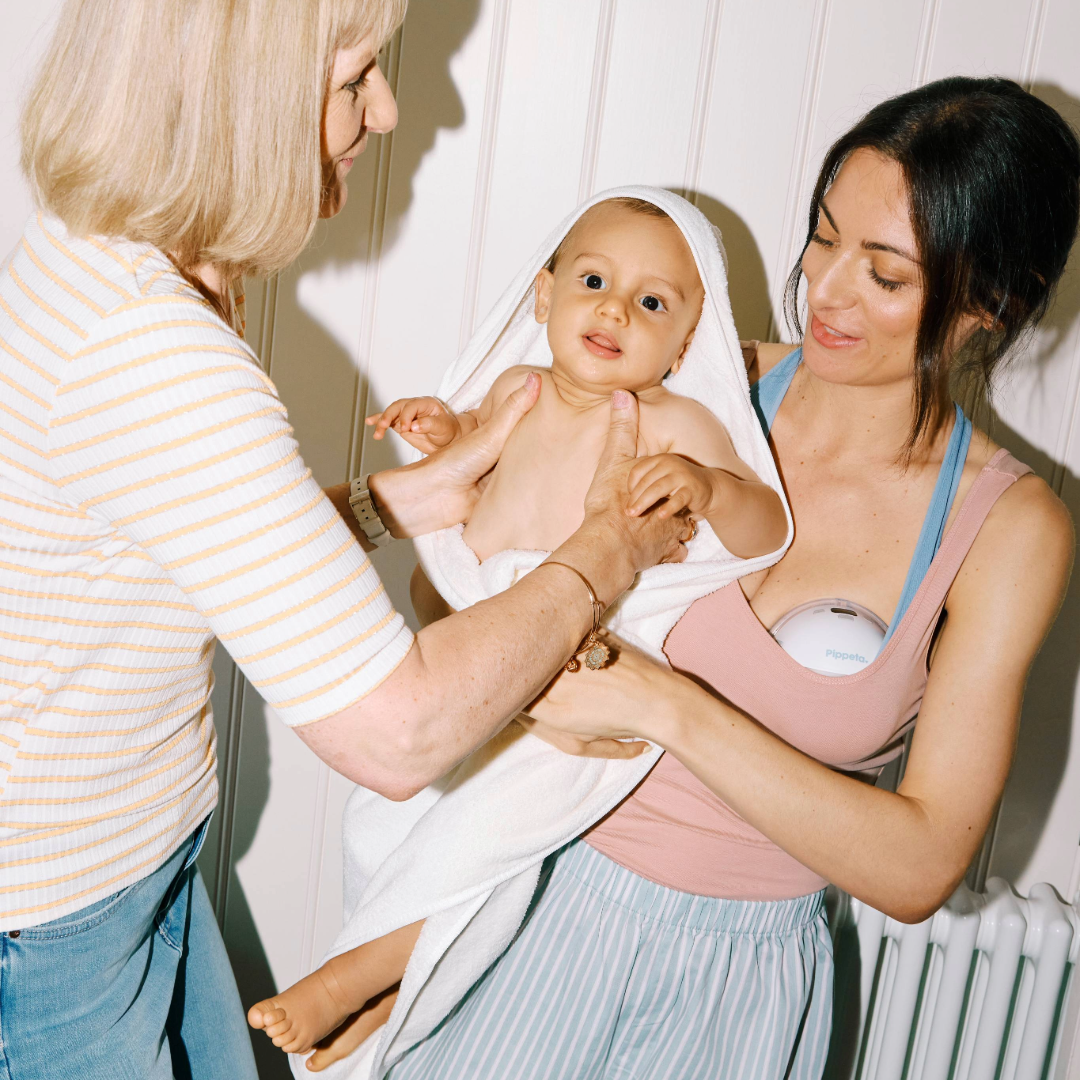Christmas is fast approaching, eek yes that’s right. Only 21 days until the big day. In the run up we (Pippeta) are going to be discussing and providing tips to maintain a healthy breastfeeding routine and encouraging you to take care of yourself throughout this busy period.
First on our list is ChristMastitis. Did you know that mastitis rates have been said to rise during the festive season? And not due to the myths around cold weather being a cause for mastitis, more due to reasons such as; having to space out feeds whilst travelling to see family and friends or doing those all-important present drops. Christmas parties and gatherings mean you are spending more time than usual away from your baby or even something as simple as family lending a helping hand with your little one meaning you miss your usual feeding cues. Sounds relatable right? Read along to hopefully prevent the risks.
What is mastitis?
Let’s define what mastitis really is as again there can be lots of misconceptions. Mastitis is more than just sore or cracked nipples (which we’ve all experienced, ouch). Mastitis is an inflammation in the breast, which may involve a bacterial infection* and is extremely common in breastfeeding women. Mastitis can come on suddenly, and it might affect one or both breasts.
Some of the signs to look out for include tenderness or warmth, swelling, or even thickened tissue that might feel like a lump. You might notice a burning pain, which can be constant or get worse when you’re breastfeeding, and sometimes the skin looks red, often in a wedge shape. On melanin rich skin, this redness can be harder to spot, so it’s worth keeping an eye on any changes in how your breasts feel.
One more symptom that can be tricky to differentiate from flu-like symptoms—especially at this time of year when flu is passed around—is feeling generally unwell or running a fever of 38.3°C (101°F) or higher. It’s easy to dismiss it as a seasonal bug, so it’s best to pay extra attention to how you’re feeling.

How can I try to prevent ChristMastitis: Pippeta’s Top Tips!
All of this is totally avoidable. Here are a couple of our top tips to reduce the risks:
- If you have planned to travel during the next couple of weeks, be sure to schedule rest stops to feed your baby along the way.
- Using your super trusty Pippeta Handsfree Breast Pump try to express where possible around the times you are away from baby.
- Keep your little one close, by babywearing this will also hopefully keep Respiratory Syncytial Virus (RSV) at bay and keep both you and baby safe and healthy.
- Try to find safe quiet places to feed when visiting family and friends, maybe plan these ahead of time and keep a note on your phone of your baby's regular feeding patterns.
- Keep a close eye on when your breasts feel twitchy and breastfeed or express as soon as possible. This should hopefully also reduce the risk of engorgement and affecting your latch.
How to Treat Mastitis
Now you know how to spot the signs if you don’t manage to prevent Mastitis and unfortunately feel you are spotting the signs do seek immediate support from either your local GP, midwife or a qualified lactation consultant.
Treatment for mastitis often includes changing breastfeeding technique, with the assistance of a lactation consultant. In some more serious cases antibiotics may be required and in the worst case scenario if an abscess is formed surgical drainage or needle aspiration can be needed.*
Despite all of the above breastfeeding through Mastitis is still both possible and encouraged and in some cases can promote a successful recovery from infection. We’d hate to think anyone’s breastfeeding journey was brought to an end through getting Mastitis so stay safe this holiday season and for any further advice do get in touch or read more of the helpful resources provided below.
Read more about Mastitis etc..
https://www.nhs.uk/conditions/mastitis/
https://www.nhs.uk/conditions/respiratory-syncytial-virus-rsv/
Resources:
Pevzner M, Dahan A. Mastitis While Breastfeeding: Prevention, the Importance of Proper Treatment, and Potential Complications. J Clin Med. 2020 Jul 22;9(8):2328. doi: 10.3390/jcm9082328. PMID: 32707832; PMCID: PMC7465810.
Spencer JP. Management of mastitis in breastfeeding women. Am Fam Physician. 2008 Sep 15;78(6):727-31. PMID: 18819238.















Leave a comment
This site is protected by hCaptcha and the hCaptcha Privacy Policy and Terms of Service apply.